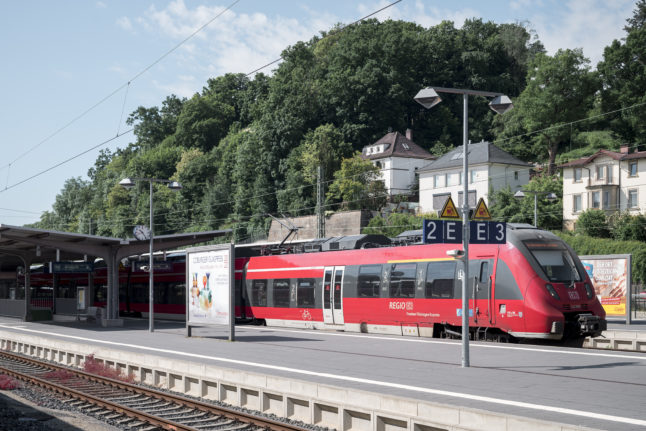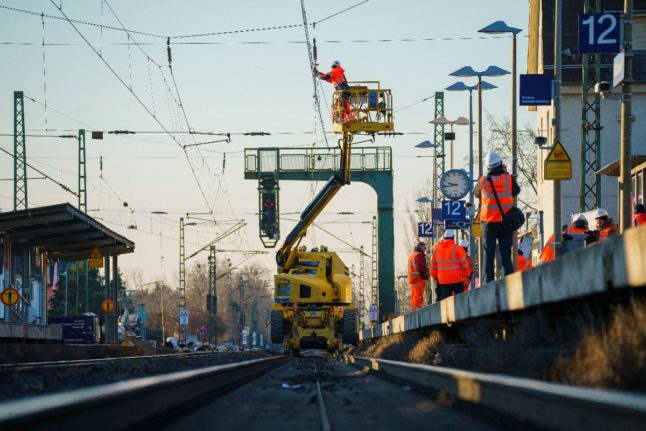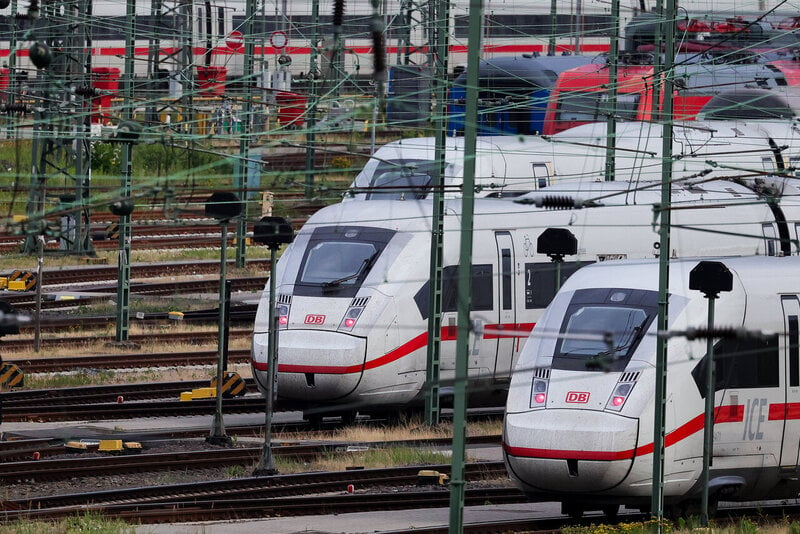What’s going on?
Germany’s €9 travel deal has been hugely popular this summer, with an estimated 30 million or so passengers taking advantage of the offer in June alone. Now the last month of the three-month offer is underway, there are hopes that the ticket could be replaced by another deal that offers simple, affordable travel on a regional or national basis.
There have been a few ideas for this floating around, including a €365 annual ticket and a €69 monthly ticket pitched by German transport operators. Now the Green Party has weighed in with a concept paper setting out plans for two separate travel tickets to replace the €9 ticket. The paper was obtained by ARD Hauptstadtstudio on Friday.
Why do they want two different tickets?
The first ticket would be a regional one costing just €29 a month and the second would be a €49 that, much like the €9 ticket, would be valid for the whole of Germany.
This would allow people who mainly stay in their local region to opt for the most cost-effective option while long-distance commuters or those who want to travel further afield could opt for the nationwide offer.
Presumably the ticket would once again be valid for local and regional transport only rather than long-distance trains like the ICE.
To simplify the system even more, the Greens also want to introduce new travel zones for the regional monthly tickets.
READ ALSO: Has Germany’s €9 rail ticket been a success?
How would the travel zones change?
According to the paper, Germany would be divided into eight regional zones that would include the Berlin-Brandenburg area, the eastern German states of Thuringia, Saxony and Saxony-Anhalt and the northern states of Hamburg, Schleswig-Holstein and Mecklenburg Western-Pomerania.
The zones take passengers “statewide at a minimum”, the paper says, for example in the larger states of Bavaria, Baden-Württemberg and North-Rhine Westphalia.
However, as the map below shows, states will also be clustered together to make larger regions.
Breaking: German Greens propose a successor for the €9 ticket
€29 for a monthly regional ticket (see below) or €49 for a national ticket
Via @tinaroh pic.twitter.com/GLZCDOgqsd— James Jackson (@derJamesJackson) August 5, 2022
One of the major draws of the €9 ticket has been the flat-rate system that allows passengers to travel anywhere in the country using the same ticket. This appears to be what the Greens are trying to replicate with their proposals.
READ ALSO: What happens to Germany’s €9 ticket at the end of August?
How would this be financed?
As you might expect, the Green Party is placing less eco-friendly forms of transport in the crosshairs as it looks for cash to fund the cheap tickets.
The first way to free up cash would be to end tax breaks for people with company cars. In addition, taxes on CO2 emissions would be increased.
This would result in “additional revenues for the federal government and the states, which could flow seamlessly into the financing of cheap tickets”, the paper states.
However, the Greens don’t set out how much money they think this would bring in or how much the discounted tickets would cost the state in total.
Is this definitely going to happen?
At the moment, it seems that the Greens are the main voices in the coalition government pushing for a longer term travel deal – and they continue to face opposition from the pro-business FDP.
Unfortunately for the Green Party, the FDP happen to be heading up two crucial ministries that could both play a role in blocking a future offer: the Finance Ministry and the Transport Ministry.
However, with four out of five people saying they want to see a successor to the €9 ticket in autumn, Transport Minister Volker Wissing (FDP) is currently under pressure to come up with a replacement as soon as possible.

At a press conference a few weeks ago, he promised to discuss this with the state transport ministers after analysing how successful the ticket had been.
In particular, researchers will want to look at how many people ended up leaving the car at home and taking the bus or train instead.
Though the data on this is inconclusive at the moment, some studies have shown reduced congestion on the roads while the ticket was running.
In a survey of The Local’s readers conducted last month, 80 percent of respondents said they had used public transport more with the €9 ticket and 85 percent said they wanted to see a similar deal continue in the autumn.
Of the options on the table so far, a monthly €29 ticket was by far the most popular choice.
READ ALSO: ‘Affordable and simple’: What foreigners in Germany want to see after the €9 ticket




 Please whitelist us to continue reading.
Please whitelist us to continue reading.
Member comments